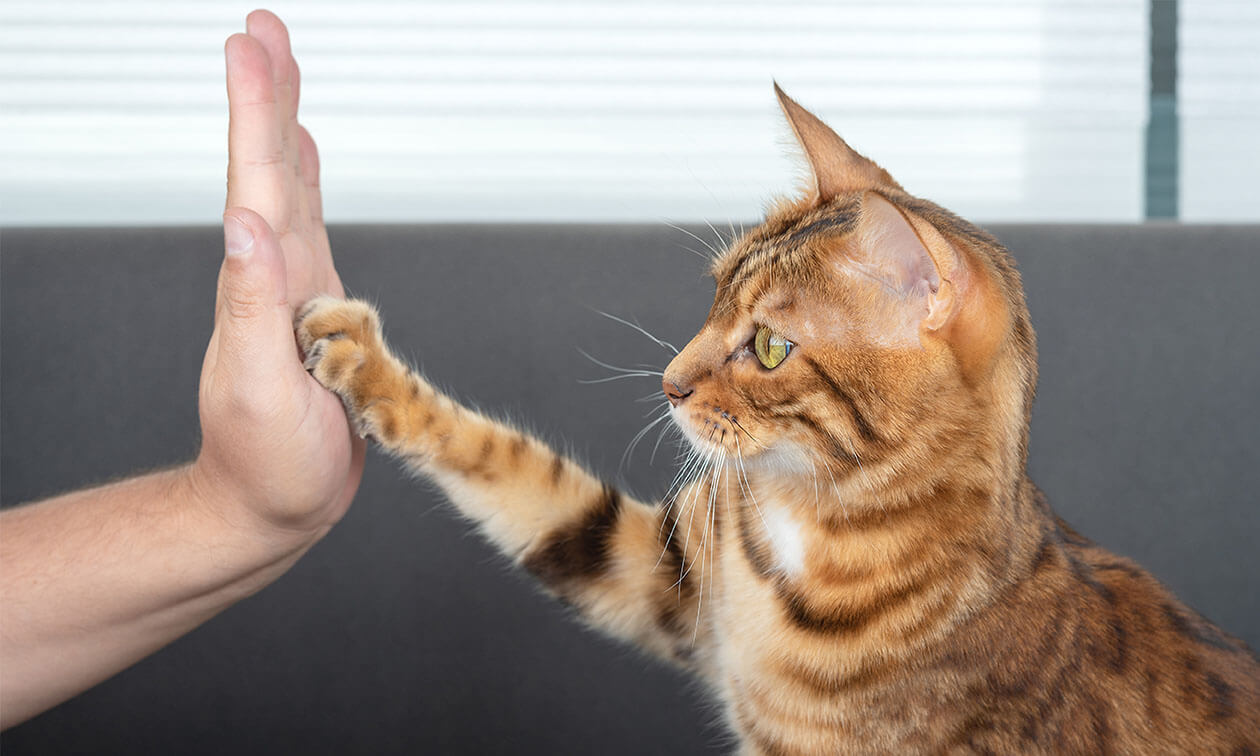Whether you already have a cat or are still trying to decide which furry feline to add to your family, you should consider training. Yes, you can train cats, and it’s wonderful for their body, mind, and stress levels when you use positive reinforcement training. The great news is that just about any cat can learn helpful behaviors. Let’s explore the benefits of training and which cats tend to do best with it. Remember any cat breed can be trained because all cats have individual personalities, but there are some breeds that may tend to be easier to train, which we’ll cover here.
Which Cat Breeds Respond to Training?
Any breed of cat has the potential for a positive training experience. Those breeds with the characteristics discussed more in the following section are often considered ideal for training. These easy-to-train cats include:
The list doesn’t stop here. Consider the breed’s energy level, intelligence, and curiosity. Many things can influence your cat’s ability to learn or interest in learning — personality, reward value, your training methods, and more. Breed isn’t the most important factor.
What Types of Cats Do Best with Training?
Just about any cat can do well with training – it’s all about finding something they enjoy enough to do a little work for it. Food-motivated cats tend to be the easiest to work with, but you can use petting, tossing a favorite toy, brushing, and even verbal praise as a reward for your cat. Once you find that positive reward, you can start training.
While certain breeds tend to do well with training, any cat can take to training. Trainability is more about the individual cat’s characteristics than the breed. Of course, positive training methods are a must.
Cats who tend to pick up training quickly include those who are:
- Intelligent. All cats are smart., but some seem better at things like figuring out food puzzles, how to open doors and drawers, how to get your attention, etc. These cats are itching for something to work their brains and often respond well to training.
- High energy. Most kittens hit their peak energy phase starting around nine months old. That’s when people tend to get desperate for things to keep them occupied. This can be the case for older cats as well. Channeling that energy into training is a great way to manage it.
- Curious. Like energy, curiosity can indicate an active brain that wants something to focus on.
- Food motivated. Of course, you don’t want to starve your cat for training purposes, but cats who get excited about treats and meals often do very well with training. They want to do the work to get that reward. Don’t worry, if your cat doesn’t love treats, just try to find something else they’re willing to work for.
ZPC-02720



